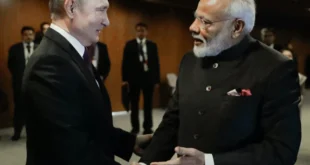By Eng. Saleem Al-Batayneh
In the realm of grammar lessons, we come across the conditional “if,” a powerful word that extends its influence from syntax to the intricate domain of Arabic politics.
The question we pose is neither naive nor prejudiced. It arises from the buzz that relentlessly surrounds us, fueled by the actions of Israel and the racist statements emanating from its ministers towards Palestinians and the entire Arab world.
As Arabs, we have endured countless calamities in our present time. We find ourselves standing silent and helpless in the face of Israel’s crimes, repeatedly resorting to a mournful chorus of denunciation and condemnation, tinged with the fear of retribution. The ongoing events in Al-Aqsa, East Jerusalem, and the West Bank, coupled with the statements of Israeli officials, serve as undeniable evidence of our concerns.
It becomes painfully evident that we remain in a state of deep slumber and suffocating stagnation, while Arab regimes teeter on the precipice of exhaustion, hurtling toward an uncertain future.
The pro-Zionist world order has successfully domesticated some Arab leaders, while Israeli leaders shamelessly embody an ideology that dismisses those who do not adhere to Zionism. This ideology permits the destruction, exclusion, and displacement of people from their homes, all in the pursuit of an agenda steeped in racism and fascism toward others.
A tragic irony presents itself: Arab presidents eagerly wave the flag of peace with Israel, while Israel, in turn, waves the banners of racism and arrogance. What periodically comes to light merely scratches the surface of a concealed reality.
Our contemplation is prompted by the recent statements of Bezalel Smotrich, the Israeli Minister of Finance and leader of the Religious Zionist Party. During an event commemorating the French freedom fighter Jake Cooper in March 2023, Smotrich brazenly declared, “A Palestinian is a fake people, and it is the biblical historical truth that the Arabs should hear!” Behind him, a map displaying Greater Israel, including Jordan, was revealed.
Regrettably, these statements were made shortly after the conclusion of the Sharm El-Sheikh summit on March 19, 2023, where Israel, Egypt, Jordan, and the United States were involved under the banner of sponsorship.
The sorrowful reality is that the current relationship between Arab governments and Israel evokes a woeful image reminiscent of Ibn Katheer’s portrayal in his book, “The Beginning and the End,” of the Mongol invasion of Baghdad in 1258 AD. The Mongols carried out systematic acts of humiliation against the symbols of the Abbasid state, which was on the verge of collapse.
Our fears arise from the potential erasure of archives and the theft of history. Forty years ago, Moshe Dayan brazenly stated that Jordan has no right to exist, branding it as an artificial entity. It is imperative that we awaken to the reality that Jordan is uniquely affected by Israel’s barbaric and racist actions in Jerusalem, Jenin, Nablus, and throughout the West Bank.
It should be a top priority in Jordan’s foreign policy to advocate for the establishment of a Palestinian state based on the two-state solution, as it aligns with Jordan’s supreme interests.
The current situation on the ground, as reported by The Daily Telegraph, an “extreme right-wing” London newspaper, indicates the gradual erosion of the Hashemite Custodianship of the Holy Places. The developments in Judea, Samaria, and Jerusalem merely serve as the implementation of the so-called historic “deal of the century.” Already, Jerusalem has been declared as the eternal capital of Israel, with plans to divide the revered Al-Aqsa Mosque and demolish the Dome of the Rock, making way for the construction of a temple—an alarming prospect looming ever closer.
Smotrich’s recent comments echo sentiments expressed months prior by Itamar Ben Gvir, the Israeli Minister of Murder, who callously claimed that the Netanyahu government had already killed 120 Palestinians since the beginning of the year, with more to come. He shamefully described the Palestinian people as creatures devoid of value.
These statements, combined with the historic declarations made by the founder of world Zionism, Theodore Herzl, and the actions of Moshe Dayan, succinctly capture the essence of early Zionist policies towards Palestine and the Arab people. Denying these conspiracies would be unwise, as they have long persisted within the realm of Zionist thought.
The unfortunate reality is that Israel possesses a free pass, paying little heed to Arab sentiments. Meanwhile, freedom of expression, as observed in certain Arab countries, cowers helplessly in the face of Israel’s actions. Any criticism is unjustly labelled as anti-Semitism, and those daring to speak against Israel are immediately branded as enemies of Jews and anti-Semites, treated as criminals and enemies of humanity.
This leads us to question: What if the roles were reversed, and an Arab minister made statements against Israel, proclaiming that Palestine belongs to the Arabs from the sea to the river? The world would undoubtedly rise, refusing to remain idle.
Let us recall the wisdom of the late Saudi King Khaled bin Abdul Aziz, who wisely asserted that no Arab leader can survive if they acquiesce to a solution that disregards the rights of Palestinians and neglects Jerusalem and its sanctities. His words, spoken in May 1977 during his meeting with British Foreign Secretary David Owen, resonate with profound significance.
In conclusion, we must pay tribute to the late genius Egyptian artist Tawfiq Al-Dakan, and his unforgettable role in the film “I Love You, Hassan.” In his portrayal of Abdo Danas, a neighbourhood thug, he sang of honour, proclaiming that nothing surpasses its value.
Indeed, honour is unparalleled, but let us first establish what form of honour we are discussing. It is a question demanding urgent attention and thoughtful reflection.
Engineer Al Batayned was a former member of the Jordanian Parliament.
 Geostrategic Media Political Commentary, Analysis, Security, Defense
Geostrategic Media Political Commentary, Analysis, Security, Defense





